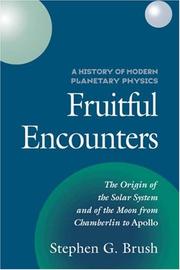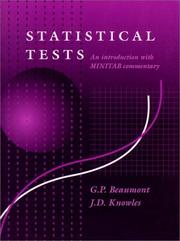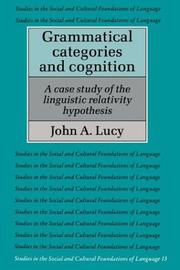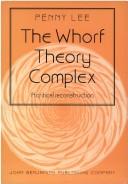| Listing 1 - 10 of 24 | << page >> |
Sort by
|

ISBN: 0863152023 9780863152023 Year: 1996 Publisher: Edinburgh: Floris Books,
Abstract | Keywords | Export | Availability | Bookmark
 Loading...
Loading...Choose an application
- Reference Manager
- EndNote
- RefWorks (Direct export to RefWorks)

ISBN: 1569751005 Year: 1996 Publisher: Berkeley Ulysses press
Abstract | Keywords | Export | Availability | Bookmark
 Loading...
Loading...Choose an application
- Reference Manager
- EndNote
- RefWorks (Direct export to RefWorks)
Book
ISBN: 1563381842 Year: 1996 Publisher: Philadelphia Trinity Press International
Abstract | Keywords | Export | Availability | Bookmark
 Loading...
Loading...Choose an application
- Reference Manager
- EndNote
- RefWorks (Direct export to RefWorks)
Book
ISBN: 0761952055 0761952047 Year: 1996 Publisher: London Sage
Abstract | Keywords | Export | Availability | Bookmark
 Loading...
Loading...Choose an application
- Reference Manager
- EndNote
- RefWorks (Direct export to RefWorks)
Science --- Statistics --- Statistique --- Statistical hypothesis testing. --- Statistical hypothesis testing --- Hypothesis testing (Statistics) --- Significance testing (Statistics) --- Statistical significance testing --- Testing statistical hypotheses --- Distribution (Probability theory) --- Hypothesis --- Mathematical statistics
Book
ISBN: 0198523955 9780198523956 Year: 1996 Volume: 34 Publisher: Oxford: Clarendon,
Abstract | Keywords | Export | Availability | Bookmark
 Loading...
Loading...Choose an application
- Reference Manager
- EndNote
- RefWorks (Direct export to RefWorks)
Set theory. --- Continuum hypothesis. --- Théorie des ensembles --- Set theory --- Théorie des ensembles --- Continuum hypothesis --- Aggregates --- Classes (Mathematics) --- Ensembles (Mathematics) --- Mathematical sets --- Sets (Mathematics) --- Theory of sets --- Logic, Symbolic and mathematical --- Mathematics --- Generalized continuum hypothesis --- Hypothesis, Continuum --- Hypothesis, Generalized continuum

ISBN: 0521552141 Year: 1996 Publisher: Cambridge Cambridge University press
Abstract | Keywords | Export | Availability | Bookmark
 Loading...
Loading...Choose an application
- Reference Manager
- EndNote
- RefWorks (Direct export to RefWorks)
Nebular hypothesis --- Planetology --- Moon --- Solar system --- Exploration. --- Origin.

ISBN: 0521441714 Year: 1996 Publisher: Cambridge Cambridge University press
Abstract | Keywords | Export | Availability | Bookmark
 Loading...
Loading...Choose an application
- Reference Manager
- EndNote
- RefWorks (Direct export to RefWorks)
Nebular hypothesis --- Earth (Planet) --- Solar system --- Core. --- Origin.

ISBN: 0138425760 Year: 1996 Publisher: London Prentice-Hall
Abstract | Keywords | Export | Availability | Bookmark
 Loading...
Loading...Choose an application
- Reference Manager
- EndNote
- RefWorks (Direct export to RefWorks)

ISBN: 0521384192 0521566207 0511620713 Year: 1996 Publisher: Cambridge : Cambridge university press,
Abstract | Keywords | Export | Availability | Bookmark
 Loading...
Loading...Choose an application
- Reference Manager
- EndNote
- RefWorks (Direct export to RefWorks)
Grammatical Categories and Cognition uses original, empirical data to examine the Sapir-Whorf linguistic relativity hypothesis: the proposal that the grammar of the particular language we speak affects the way we think about reality. The author compares the grammar of American English with that of Yucatec Maya, an indigenous language spoken in south-eastern Mexico, focusing on differences in the number marking patterns of the two languages. He then identifies distinctive patterns of thought relating to these differences by means of a systematic assessment of memory and classification preferences among speakers of both languages. The study illustrates the distinct approach to empirical research on the linguistic relativity hypothesis which Lucy develops in a companion volume Language Diversity and Thought.
Amerindian languages --- English language --- Comparative linguistics --- Grammar --- Sociolinguistics --- Cognition --- Grammar, Comparative and general --- -Sapir-Whorf hypothesis --- Relativity (Linguistics) --- Whorf-Sapir hypothesis --- Anthropological linguistics --- Psycholinguistics --- Psychology --- Comparative grammar --- Grammar, Philosophical --- Grammar, Universal --- Language and languages --- Philosophical grammar --- Linguistics --- Philology --- Grammatical categories --- Grammar, Comparative --- Sapir-Whorf hypothesis. --- Grammatical categories. --- Sapir-Whorf hypothesis --- Categories, Grammatical --- Categorization (Linguistics) --- Componential analysis (Linguistics) --- Major form classes --- Cognition. --- Arts and Humanities --- Language & Linguistics

ISBN: 902724569X 1556196180 9786613174772 1283174774 9027283907 1556196199 9789027283900 9781556196188 9781556196195 9789027245694 9027245703 9789027245700 Year: 1996 Volume: 81 Publisher: Amsterdam : Benjamins,
Abstract | Keywords | Export | Availability | Bookmark
 Loading...
Loading...Choose an application
- Reference Manager
- EndNote
- RefWorks (Direct export to RefWorks)
At last - a comprehensive account of the ideas of Benjamin Lee Whorf which not only explains the nature and logic of the linguistic relativity principle but also situates it within a larger 'theory complex' delineated in fascinating detail. Whorf's almost unknown unpublished writings (as well as his published papers) are drawn on to show how twelve elements of theory interweave in a sophisticated account of relations between language, mind, and experience. The role of language in cognition is revealed as a central concern, some of his insights having interesting affinity with modern connection
Psycholinguistics --- Philosophy of language --- Sociolinguistics --- Whorf, B. --- Whorf, Benjamin Lee --- Sapir-Whorf hypothesis. --- Linguistic analysis (Linguistics) --- Analysis, Linguistic (Linguistics) --- Analysis (Philosophy) --- Grammar, Comparative and general --- Relativity (Linguistics) --- Whorf-Sapir hypothesis --- Anthropological linguistics --- Whorf, Benjamin Lee, --- Whorf, B. L. --- וורף, בנג׳מין לי, --- Sapir-Whorf hypothesis --- Analyse linguistique (Linguistique) --- Sapir-Whorf, Hypothèse de
| Listing 1 - 10 of 24 | << page >> |
Sort by
|

 Search
Search Feedback
Feedback About UniCat
About UniCat  Help
Help News
News